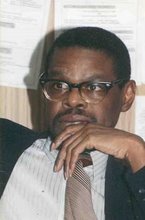Monday, July 13, 2009
Why They Will Never Legalize Drugs in U.S.
With the tragic death of musical superstar Michael Jackson and the swirling rumors about drug usages, I am drawn to the writings of Ryan Grim, senior congressional correspondent for the Huffington Post. Ryan recently appeared on CNN promoting his new book, “This Is Your Country on Drugs”, and advocating legalization of certain drugs in order to combat the violence associated with illegal drug trafficking.
It behooves the Mexican Cartels and Mafia to keep prohibited drugs illegal. Legalization would reduce the price of drugs and dry up the black market. It would reduce drug related gun violence, and hence the black market for weapons. As it stands now, automatic gun sales keep rising and ammunition sales are off the charts, and so on. Drug trafficking fuels gun sales and gun sales fuel violence.
It is a known technique to distribute drugs among competing gang factions, and then instigating retaliatory violence between them over turf, for the sole purpose of selling more guns. Therefore, it would be no surprise to see the NRA and gun rights advocates oppose legalization. Gun shows, which are legal, have always provided an avenue for gangsters to get their hands on weapons. With more drug money, the more expensive and powerful the weapons sold.
Wherever there is big money, such as that generated by the drug trade, there will always be corrupt officials and police willing to take a piece of the dirty pie. FOR EXAMPLE: There is the story of an informant, willing to testify against his drug supplier in exchange for leniency on another charge. Two police officers arrived at his home and promised to take him and put him into protective custody. He never made it. Instead, the two officers delivered him to the drug kingpin.
No doubt, crooked cops and crooked politicians are probably as prevalent in Mexico today as once in the United States. As long as drugs are kept illegal, they will continue to get a slice of the action. Therefore, opposition to legalization from police associations and politicians may be tainted by the influence of those who now benefit from the trade.
The pharmaceutical industry, like the weapons industry, has a vested interest in seeing illegal drugs remaining a banded “controlled substance”. But most illegal drugs began with the pharmaceutical companies.
Heroin (Diacetylmorphine) was synthesized from morphine in 1874 and brought to market by Bayer in 1898. Coca-Cola was invented in a drugstore by John Pemberton and originally intended as a patent medicine. The formula called for five ounces of coca leaf per gallon of syrup in 1891. Coca-Cola did once contain an estimated nine milligrams of cocaine per glass, but in 1903 it was removed.
Did cocaine and heroin disappear from market demand? Or, did it seek out a new, more lucrative underground market after becoming a “controlled substance”?
Subscribe to:
Post Comments (Atom)





I figured you would go into a bit more detail here. Regardless, I stand in the "never say never" camp, and in fact agree heartily with the prediction of Nate Silver (of 538.com fame) that marijuana will be legalized within a decade. I remain doubtful about harder substances even if my libertarian sensibilities hope for the logic of full legalization.
ReplyDeleteStill, your point on law enforcement and other government corruption has merit, particularly the NRA connection. I believe this could be countered by the AMA (though they may balk to save face) and the pharmaceutical industry as well as possibly the tobacco companies, who could easily switch much of their agricultural, manufacturing and marketing resources toward cannabis.
Another hurdle I perceive is simpler and along the lines of (non-corrupt) law enforcement's desire to keep order: There MUST be a roadside-usable test developed to determine if drivers are currently under the influence of marijuana, not just that they've used in recent weeks. Employers and their insurance underwriters who currently test for pre-employment (and post-accident or other random drug testing) would certainly demand this if pot were legalized. Labor unions would likely have to get on board with this also.
+.02
Mr. Griffin:
ReplyDeleteVery interesting blog. Very interesting. Keep up the good work.
The following is taken from our recent article on Michael Jackson:
"Lest you be confused about this drug thing, there is little difference between illegal/recreational drugs, and prescription drugs, with the exceptions being the legitimacy of the “entity” which produces them, who gets to prescribe them, and whether politicians benefit. Drugs be drugs.
"Take it from some guys who matured (arguably) during the drugs, sex, and rock and roll years. We know lots of successful doctors, business people, family people, accountants, judges, and pillars of society who once used drugs in many a form and fashion. Fortunately for most of them and for society, they appreciated that drugs might be an interesting pastime, but not a life long journey."